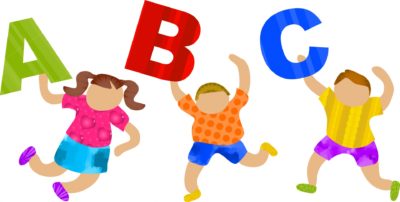 “Two things that are going well and one problem you would like to see changed. You must write a solution to the problem – otherwise you are simply complaining. Complaining in life will get you nowhere. Finding solutions to your problems will get you everywhere. Never forget the farmer! Go!”
“Two things that are going well and one problem you would like to see changed. You must write a solution to the problem – otherwise you are simply complaining. Complaining in life will get you nowhere. Finding solutions to your problems will get you everywhere. Never forget the farmer! Go!”
Almost verbatim, this is how I begin our weekly class meeting. My students quickly jot down joyful things and happy thoughts; focusing on the good in their lives, their school, their class and their friends. But they do not forget the farmer – the one who stops pulling his drowning sheep from the river and runs upstream to puzzle out the reason they are in the river to begin with and then solves the problem.
Recently I was in a teachers’ meeting and the special education teacher was running through some data on our students. She mentioned my own five-year-old who she has worked with on phonograms throughout the year. “My word, she really is such a curious child! Always full of questions! Such strong gains!”
I smiled – a little proud, but mostly just relieved and thankful. This wild little chatterbox had come to us at the age of three with a diagnosis of being developmentally delayed in language as well as both fine and gross motor skills. She was so small and so very silent.
The summer she and her sister came was a summer of intense wildfires in our area. It was a summer of great worries and hopes. She was both. Our school started late that year due to an evacuation of the town. I had barely begun to adjust to her playing quietly underfoot before she was enrolled at the preschool in our school’s building and I was back in the classroom. I was not sure I was making the right choice.
The first day she came home with clay in her hair, blue paint on her new pink dress, her hair flung out of her ponytails and a new, shy smile I had never seen. Her preschool experience changed the very foundation upon which she stands today. The quiet one was left behind on the nap mat that year. She is now reading words, writing, playing with others, and is so full of questions. Why? Why? Why? (Sometimes I think we live with a baby seagull.)
The majority of the data in that meeting reflected strong gains throughout the building. A moment of celebration and “YES!” should have followed. But, our principal was unusually somber. She broke the news…
Our community’s preschool, a preschool funded by the Early Childhood Education and Assistance Program (ECEAP), was going to be terminated at the end of the month. ECEAP is designed to serve the educational needs of preschool-age children of poverty, those with developmental delays, and those deemed to be “at-risk.” We certainly have students who match these requirements; we simply don’t have enough of them to warrant the expense of a preschool in our rural community any longer. “If there is another ECEAP provider within 40 miles, and you have fewer than X number of students, funding will no longer be provided.” ECEAP’s hands are tied. It is what it is. And yet, miles is time and money; 40 miles on a bus…that’s an eternity in a preschooler’s mind, and the difference between “barely surviving” and “possibly thriving” on a tight budget.
Preschool matters, and it may matter most for those children at-risk. According to GreatSchools, the brain is undergoing major anatomical and physiological changes that can affect student learning throughout the rest of the child’s school years. Beyond building the capacities required for reading, writing and mathematical reasoning, it is a time for children to grow in their abilities to interact with others, self-regulate emotions, practice focusing attention, and learn the skills of interacting with peers. It was disheartening to be told our community’s children would no longer be able to readily benefit from the experience of preschool.
Two things that are going well? My daughter can write, identify and provide sounds for all of the letters of the alphabet as she strings them into short words. My daughter is not sullen nor silent, but full of the joy of curiosity.
One problem? There are others who will no longer have the opportunity she has had in our rural community. Where will they experience the noise and joys of learning?
The solution? Go upstream! We need to leverage our collective influence to impress upon decision-makers how significant and important early education is. Our students are on a continuum of growth, starting long before the “first day of school.” Early childhood education affects us all and its impact may be greatest on our most at-risk children; all of them – not just those lucky enough to live in close proximity to ECEAP services. Many of your future students, the ones coming down the stream to you already, are counting on it.
Great blog, I agree completely. It’s like building a house, nothing will stand without the foundations. Pre-school education is very important for socialization, beginning reading, and getting into an educational routine.
Thanks,
Charles Boone
Walden University